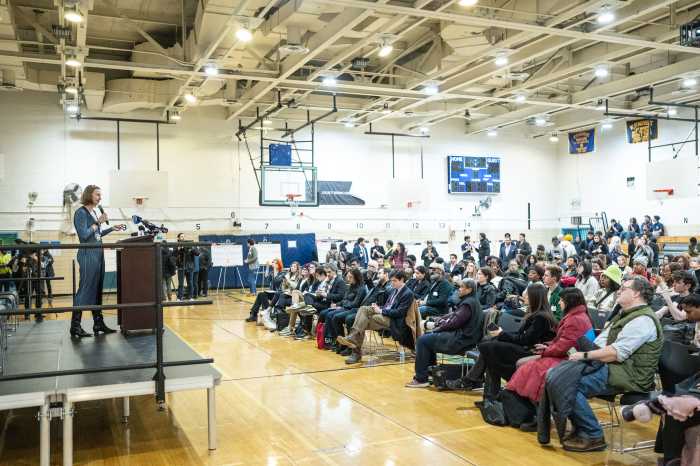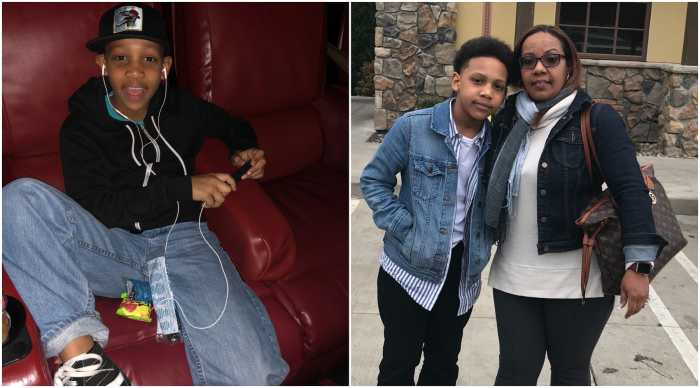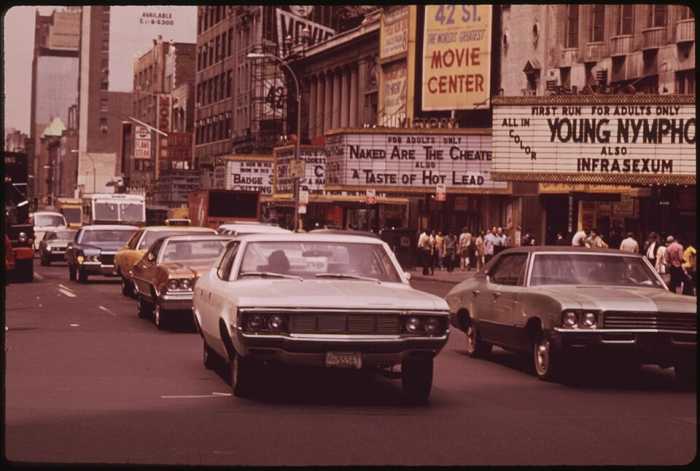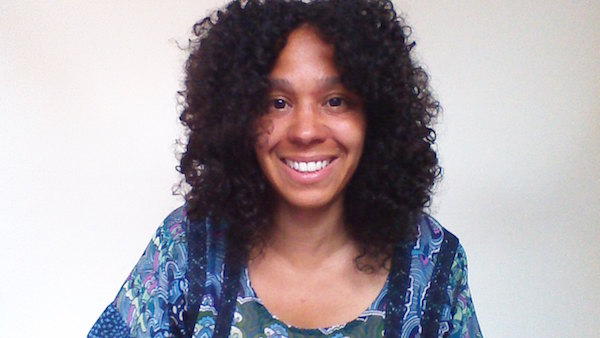
BY DUSICA SUE MALESEVIC | With one full board meeting already under her belt, new Community Board 4 Chair Delores Rubin spoke with Chelsea Now last week, via phone. The 46-year-old Hell’s Kitchen native, who has worked for 21 years as an equity trader at Deutsche Bank, gave her perspective on Hudson Yards, liquor licenses, the Department of Buildings, and what issues she plans to tackle during her tenure. This interview has been edited and condensed, and formatted as a Q&A.
CHELSEA NOW: Tell us about growing up on W. 55th St. and Eighth Ave. in Hell’s Kitchen.
DELORES RUBIN: What I’m going to say is that, technically, it’s Hell’s Kitchen. But Eighth Ave. is that border avenue. So my neighborhood has always been — we’ll call it — transitional and transient, but not always getting the full flavor of the rest of Hell’s Kitchen. My elementary school, PS 111, however, is right in the heart of Hell’s Kitchen, and at the time that I was growing up there, it was a transition from a heavy Irish population to a more Hispanic population.
The neighborhood, for most of my childhood, seemed very stable. There were parts of the neighborhood that seemed a little more sketchy than others. But there was never a point in time where I feared living in my neighborhood. In fact, it was very neighborhoody. So that when I walked home from school, you saw the same shop merchants, because there were a lot of smaller shops, not the bars and restaurants that are there now. They would always know the same kids. In fact, I remember certain of the smaller stores, they’d wave at you and they’d say hello.
CN: Where did you go for high school?
DR: I went to Hunter High, so I started in seventh grade — it took me out of the neighborhood.
CN: Then you attended Duke University? What did you study?
DR: German and psychology.
CN: So how did you make the leap to finance?
DR: There wasn’t a leap to it. It was coming out of school in ’90. There were not that many jobs. It was coming out of a recession. It was really just find whatever you can. I think it was a lot easier back then to get into the financial industry without having a very specific finance background.
CN: What spurred your community involvement?
DR: When I hit my 40s, I realized that I wanted to learn a little more about — not the community, per se — but about our political process, and was very interested in ways to give back, other than the other volunteerism that I’ve done. I had the fortune of meeting, on several occasions now, [Manhattan] Borough President Gale Brewer at different events. Some of them were political events. Some of them were block association events, and she urged me to apply, and blindly I applied.
CN: You’ve also been doing non-profit work?
DR: Currently, the volunteerism that’s probably the most prevalent for me is teaching financial literacy. I’ve done that through several organizations — [High Water Women Foundation] — and also within my firm. I believe that it’s very important to give students as well as adults a clearer understanding of the very basics in finance: how to budget, how to save, understanding what credit is, the good and the bad of credit. I think it’s important at a very young age for people to have a comfort level around money and finances.
CN: Talk about your rise through Community Board 4.
DR: Shortly after becoming a board member I filled in to be a co-secretary. Then, after being co-secretary, there was an election and I was elected as Second Vice Chair. I also was temporarily assigned as co-chair of Waterfront, Parks & Environment Committee, and then that became full-time.
Then with a change in membership on the board [I] became first vice chair and then ran unopposed for chair.
CN: Why did you run for chair?
DR: Part of it is [that] the tradition normally is, there’s a succession. Usually folks that have served as Second Vice Chair and then First Vice Chair — a lot of times that’s the natural order of things. My move was very quick. Some of it, basically, due to people leaving the board. During the time I was First Vice Chair under Christine Berthet, Christine was great about allowing me to go ahead and fill in for her occasionally at Borough Board. I ended up also by being on the Budget Task Force and a couple other working groups that Christine Berthet had formed, and had already been taking more leadership roles. So it was a natural progression just because of my involvement. Since I ran unopposed, it’s pretty clear that there weren’t any folks at the time that were looking for the role. A lot of it is just the timing as well as it was a natural fit with how much I’ve been active in the board in the last year and a half.
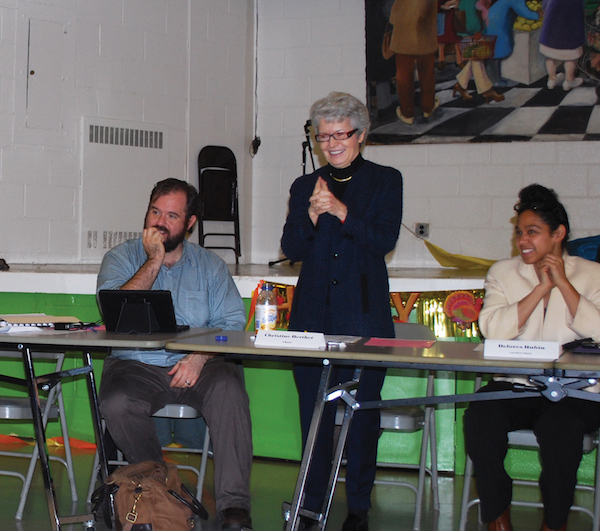
CN: How did your first full board meeting as Chair go?
DR: It’s actually very funny: It was a short meeting. We didn’t have a lot on the agenda so I think it was — the tone was very joyous because folks who are volunteers very much appreciate when they’re not at an extremely long, contentious meeting. It was really very celebratory of Christine Berthet with a lot of proclamations recognizing the hard work that she’s done for the past two years. It was a very lovely feel to the whole meeting.
CN: At the last full board meeting [Jan. 6, 2016], there were discussions about working more with the Department of Buildings. Can you expand on that?
DR: It’s a very tricky situation talking about a complete agency. There are some general problems that have been identified with the processes that are in place for Department of Buildings. We just happened to have noted over the last few years where we’re not getting responses on requests for certain things, or it’s not clear when something has been granted what’s going on.
There’s a Task Force on Construction Safety as well that involves the Department of Buildings. There are concerns about the issuing of permits for work on buildings. If you walk through the neighborhoods of Chelsea and Hell’s Kitchen, you’ll see that there’s scaffoldings in lots of areas, ’cause there’s development, and a lot of these permits for the different types of work, that’s going to be issued by the Department of Buildings.
There are some buildings where we’re concerned about whether or not the correct due diligence has been done to make sure that people are protected within those buildings, or that the paperwork has correctly stated whether or not those buildings are vacant, and also to understand better whether or not…it has been determined if the building should be demolished or not. So we’ve had some situations there.
CN: Some businesses have had concerns about how community boards grant liquor licenses and sidewalk cafes. Borough President Gale Brewer has suggested that there be more businesspeople on community boards. Your take?
We have a Business Balance Task Force and that is speaking exactly to that issue, and it really is modeled after what Gale Brewer had put in place [at] Community Board 7.
The whole idea there is to not single out a particular industry but to take a look at what measures can be put in place to help attract different types of businesses, or to protect certain types of businesses from losing their lease or being priced out. There are many mechanisms…[but] not ones that a community board can implement. But if these conversations happen and we can identify some recommendations, what our hope is is that our elected officials can then take that ball and run with it, and help craft legislation which allows for that balance.
But if you create an atmosphere where there are incentives both by a landlord as well as the businesses, that they can thrive in a neighborhood, then I think that you will end up getting some of that balance. That’s what our Task Force is working toward.
CN: Can you address concerns by business owners that the liquor license and sidewalk cafe application process is arduous, and at times limiting because of the restrictions placed on hours?
DR: That also was one of the objectives: to bring in people from the business community. We did have at least one or two different businesses that did show up. They are open public meetings. What we hope to do in this coming year is to get the word out a little bit more so that we can try to bring in a balanced voice to that Task Force. That really means a little bit of work on the part of ourselves to let businesses that already exist as well as potential business entrepreneurs, to come to these meetings and to give their ideas, and to help us craft better recommendations. It is definitely a goal. We had some success in having some participation, but we probably could add some additional voices to strengthen our recommendations.
I can see where the process itself can be challenging. I think from my understanding the process in New York City is very different from how the SLA [State Liquor Authority] manages their issuing of licenses anywhere else in the state. We are very unique in New York City that we have these advisory boards, our community boards, and where it is helpful to ensure that the community can state upfront where there are problems.
CN: What are some of the issues you will focus on as chair?
DR: First and foremost, I think it’s been pretty consistent that we have been on the frontlines trying to fight for affordable housing.
We have posted on our website an affordable housing plan, and this is something that’s been worked on for many years. At this past full board meeting, we actually voted to make amendments because it is a living document…the status does change for certain projects, certain buildings…I think that the work that went into to it was tremendous. It really took a very good look at, and identified, potential sites within our district, as well as documented what may be leaving in our district.
I think it’s important to understand a lot of the 80-20s — when they expire, it’s going to create a good number of apartments which will no longer have that protection, and that may end up pricing a lot of people out of our neighborhood…Hell’s Kitchen and Chelsea both [have] a history of a very diverse population over the years.
Transportation — that’s citywide. But transportation, there’s just a host of concerns. The extension of the number 7 line was a great win. Further expansion of that 7 line…would be nice as well. Improving bus service. Trying to create a better balance between pedestrians, cyclists and motorists, which is always very difficult. Our previous Chair, Christine Berthet, leading the organization CHEKPEDS [Clinton Hell’s Kitchen Coalition for Pedestrian Safety], has been extremely diligent in following up on a lot of these issues, and has successfully been able to provide a good number of recommendations that have made our neighborhood safer with split-phase lights, which are throughout the entire district.
CN: What about Hudson Yards?
DR: It’s very interesting. When I first started on the board, I did not recognize or understand the scope of the project. Not just because it’s further south and further west from where I live, but just because it’s hard to imagine until things actually start getting put in place. Also, what I didn’t appreciate is the incredible amount of work that Community Board 4 — prior to me being there — had [to] put into ensuring that the best possible outcome for our community could be made, in light of that these are huge, huge, huge developments. We successfully do have a park, which we’re hoping that there’s funding down the road for a few more blocks for that park.
It’ll be so much more added in the neighborhood — residents, businesses, etc. And I think one of the things that Community Board 4, from the beginning, has been cautioning about, is looking at how each of these developments, in isolation, creates a problem — of not looking at potential infrastructure that’s needed to support all of the additional residents and businesses coming into the area. So what we have been very actively trying to voice throughout the entire process is that we need to look forward.





